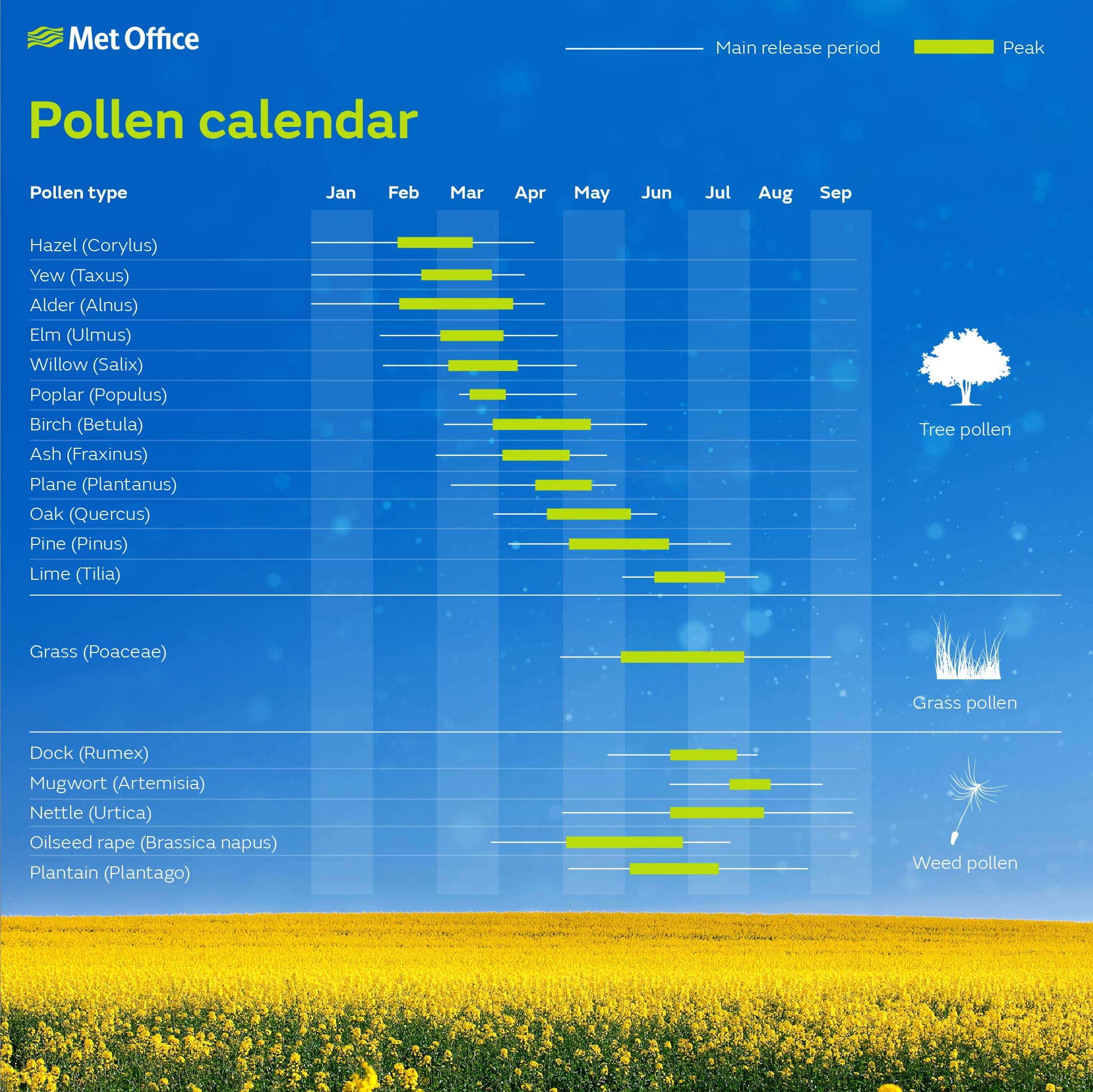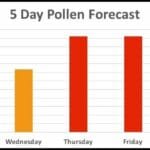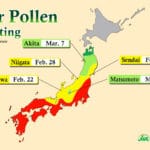Navigating Cincinnati’s Pollen: An Essential Guide
Cincinnati, with its scenic parks and vibrant downtown, can be an allergy sufferer’s paradise lost when pollen counts rise. But don’t despair! This guide arms you with the knowledge to conquer Cincinnati’s pollen season and enjoy all the Queen City offers.
What is Pollen?
Pollen, those tiny grains from trees, grasses, and weeds, are essential for plant life but can spell misery for allergy sufferers. When inhaled, pollen can trigger a cascade of unpleasant reactions, turning a beautiful day into a sneezing, sniffling ordeal.
Cincinnati’s Pollen Players: A Year-Round Challenge
Cincinnati’s pollen season isn’t confined to just a few weeks; it’s a year-round affair.
- Spring: Trees like oak, maple, and birch awaken, releasing pollen notorious for sparking allergies.
- Summer: Lush grass growth brings a new wave of pollen, making outdoor activities a potential challenge for those sensitive to grass pollen.
- Late Summer/Fall: Just when you think you’re safe, ragweed emerges, releasing its pollen and extending allergy season for many.
- Winter: While outdoor allergens settle, indoor allergens like dust mites and pet dander take center stage, reminding us that allergies can strike year-round.
Staying Ahead of the Pollen Game in Cincinnati
Knowledge is your best defense against pollen. By staying informed about daily pollen counts, you can plan your activities and take necessary precautions. Here are some invaluable resources:
- Hamilton County Environmental Services: Your local source for real-time pollen and mold data.
- Weather Apps and Websites: AccuWeather, The Weather Channel, and Pollen.com offer detailed pollen forecasts and breakdowns for specific locations, helping you anticipate high-pollen days.
Concerned about the pollen count in Boise? Stay informed and protected with our up-to-date forecast.
Outsmarting Allergies: Your Action Plan
While we can’t control the pollen count, we can control how we react. Here are practical tips to outmaneuver allergens:
- Limit Outdoor Time During Peak Hours: Pollen counts tend to be highest in the morning and evening.
- Mask Up: Masks provide a physical barrier against pollen.
- Allergy Medication: Over-the-counter antihistamines and nasal sprays can provide much-needed relief.
- Air Purifiers: Consider an air purifier to remove pollen and other allergens from your home.
- Shower and Change Clothes After Being Outdoors: Pollen can cling to you. A quick shower and a change of clothes can minimize exposure.
- Keep Windows Closed: As tempting as fresh air is, keeping windows closed, particularly on high-pollen days, can prevent pollen from infiltrating your home.
Cincinnati’s Allergy Allies: Resources for Relief
- Board-Certified Allergists: These specialists diagnose allergies and develop personalized treatment plans, which may include allergy testing to pinpoint specific triggers.
- Hamilton County Environmental Services: They offer a wealth of information on local pollen patterns, air quality, and environmental health resources.
Managing allergies is a marathon, not a sprint. With a proactive approach, knowledge, and the right resources, you can take control and enjoy life to the fullest in Cincinnati, even during pollen season.
What Allergen is High in Cincinnati Today?
Wondering what’s making you sneeze in Cincinnati today? While pollen from trees, ragweed, and grass are relatively low, AccuWeather reports that dust and dander are the main culprits, reaching high levels.
However, remember that even low pollen counts can still affect sensitive individuals. Factors like wind, humidity, and activity levels can also exacerbate allergy symptoms.
To stay ahead of your allergies, utilize resources like The Weather Channel, Pollen.com, and IQAir, which track pollen and mold levels in real-time. If you’re struggling, consider consulting a certified allergist for personalized advice and a tailored treatment plan.
Why Are My Allergies so Bad in Cincinnati?
If you feel like your allergies are working overtime in Cincinnati, you’re not alone. Cincinnati seems to have a knack for triggering allergies, and here’s why.
Pollen Central: Cincinnati is abundant with trees, grasses, and plants, all releasing pollen into the air. The city’s location in the Ohio River valley creates a “pollen bowl” effect, trapping pollen and making it difficult to escape.
The Mold Factor: Cincinnati’s humidity provides an ideal environment for mold growth, which, unlike pollen with its seasonal peaks, can thrive year-round, triggering allergy symptoms even in the dead of winter.
Climate Change: Adding another layer of complexity is climate change. Warmer temperatures mean longer growing seasons for plants, leading to extended pollen seasons and potentially more intense allergy symptoms.
While Cincinnati might seem like an allergy minefield, understanding the reasons behind the heightened allergy triggers is the first step to fighting back.
Here’s what you can do:
- Download a pollen-tracking app.
- Invest in a good air purifier.
- Shower and change clothes after spending time outdoors.
With a bit of preparation and the right tools, you can enjoy what Cincinnati offers without letting allergies hold you back.
Is Pollen Bad in Ohio Right Now?
The severity of pollen in Ohio right now depends on several factors, including location and the time of year. Pollen counts can vary greatly from city to city, and even within specific areas.
Tracking the Pollen Trail:
- Location, Location, Location: Pollen counts differ across Ohio. A windy day in Cleveland might be an allergy nightmare, while Cincinnati experiences a relatively pollen-free day.
- Seasonal Changes: Ohio’s spring sees a surge in tree pollen, while grass pollen dominates summer. Fall brings the dreaded ragweed pollen. Each season has its own set of allergens.
Staying Informed:
- Pollen Forecasts: Online resources and weather apps offer pollen forecasts to help you plan your day. Think of it as a weather forecast for your allergies.
- National Allergy Bureau: This organization provides a handy pollen forecast for Ohio and other states, offering insights into potential allergy triggers.
Minimizing Misery:
- Stay Informed: Keep an eye on pollen forecasts and adjust your outdoor plans accordingly.
- Mask Up: Masks can help filter out pollen particles, providing a barrier for your nose and lungs.
- Medication: Over-the-counter antihistamines or prescription medication can provide relief from allergy symptoms.
While we can’t control the pollen, we can control how we react. With planning and preparation, you can enjoy Ohio’s beauty without letting allergies dictate your adventures.
- Unlock Water’s Symbolism: A Cross-Cultural Exploration - April 20, 2025
- Identify Black and White Snakes: Venomous or Harmless? - April 20, 2025
- Unlocking Potential: Origins High School’s NYC Story - April 20, 2025















